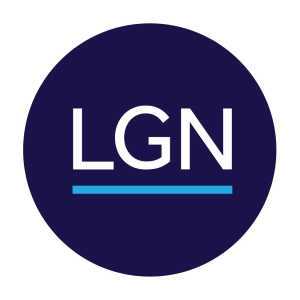Congress, White House Agree on $2 Trillion Stimulus Package
The Trump Administration struck a deal with Senate Democrats and Republicans on an historic rescue package that tees up more than $2 trillion in spending and tax breaks to bolster the U.S. economy and fund a nationwide effort to stem the coronavirus. “At last we have a deal,” Senate Majority Leader Mitch McConnell said early this morning on the chamber’s floor. Senate Minority Leader Chuck Schumer called it an “outstanding agreement.”
The legislation was still being drafted well into Wednesday morning, but Leader McConnell said the Senate would vote on it later today. Hospitals and other health-care providers will get $130 billion from the Phase III package to help respond to the coronavirus outbreak. The legislation will also give state and local governments access to a $150 billion fund that can be used to purchase needed medical supplies.
Health Providers to Get $100 Million for Training
U.S. health care systems will get $100 million in federal funding for training and resources for hospitals, emergency medical services, and 911 call centers, the Department of Health and Human Services announced Tuesday. The HHS Assistant Secretary for Preparedness and Response will direct the funds to 3 health care facilities that cared for Ebola patients, 10 regional pathogen treatment centers, 62 HHS hospital preparedness partners, and numerous hospital associations.
The funds were part of the supplemental appropriations bill signed into law March 6, also known as the Phase I coronavirus package. Those facilities will serve as “regional hubs” for other hospitals and providers, HHS said in a press release. “We cannot beat the Covid-19 pandemic without getting America’s healthcare workers the training and resources they need to respond to this novel threat, and these funds secured from Congress by President Trump will help make that happen,” HHS Secretary Alex Azar said.
HHS Could Spend Billions to Combat Ventilator Shortages
The Department of Health and Human Services is seeking companies that can produce 100,000 or more ventilators to help combat Covid-19, according to request for information (RFI) released on March 21. According to the RFI, the government is seeking to identify manufacturers that have the current capability to produce ventilators and those that are able to quickly modify their current capabilities to produce ventilators.
HHS will then use this information to develop strategies that may be used to support the Covid-19 emergency response effort. Based on the $4,000 estimated cost of a ventilator and the requirement of producing at least 100,000, this contract could be worth at least $400 million. If the costs are at higher end of the forecasted range, $28,000 to $43,000, obligations for 100,000 ventilators could rise to billions of dollars.
New Medicaid Guidance Helps States Get Higher Matching Rate
The Centers for Medicare & Medicaid Services has released new information for states that want to increase their federal matching rate during the Covid-19 outbreak. The Families First Coronavirus Response Act, the Phase II package signed into law on March 18, provides a temporary 6.2 percentage point increase to a state’s Federal Medical Assistance Percentage (FMAP), or federal Medicaid matching rate.
The new list of “frequently asked questions” from CMS provides states with information for determining which expenditures qualify for the enhanced rate, and what they must do to qualify for the temporary increase. Generally, states must maintain program eligibility standards and procedures consistent with guidelines that were in place on January 1, 2020.
State Medicaid programs also cannot charge premiums higher than those in place at the start of 2020. They would be ineligible for the temporary increase if they terminate beneficiaries who were enrolled when the Covid-19 emergency began.
First Responders Can Get Data of Patients Exposed to Covid-19
Health care providers can share the protected data of patients who have been exposed to Covid-19 with law enforcement, paramedics, or other first responders if doing so is needed to provide treatment, HHS said this week. The Department of Health and Human Services’ Office for Civil Rights issued guidance Tuesday clarifying when entities covered under the Health Insurance Portability and Accountability Act can disclose patient data to first responders amid the new coronavirus pandemic.
Providers can share identifiable health data such as names and addresses without patients’ permission when that information would help emergency staff provide treatment, is required by law, or when first responders could be at risk of infection, according to the guidance. The guidance is intended to alert first responders, such as EMTs, paramedics, firefighters, and police officers, so that they can take extra precautions or use personal protective equipment.
The guidance follows an HHS bulletin issued in February that highlights the type of patient information hospitals and providers can share in an infectious disease outbreak or other emergency situation.
